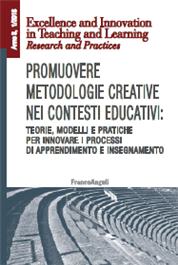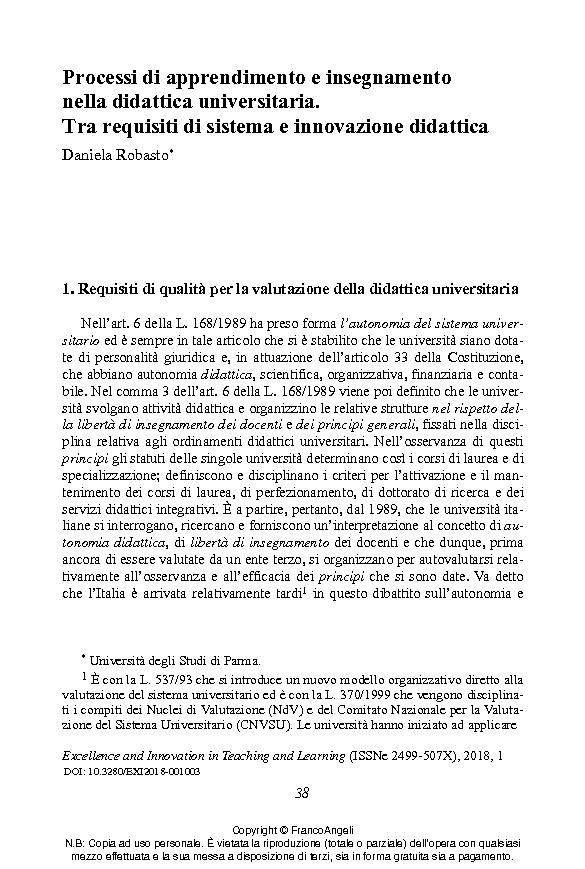Processi di apprendimento e insegnamento nella didattica universitaria : tra requisiti di sistema e innovazione didattica
38-58 p.
The national and international pedagogical literature regarding the evaluation and self-evaluation processes of higher education systems, highlighted the possible distortions, in terms of effectiveness of the teaching-learning process, of the use of tools for assessment based on the opinion of students (Feldman, 1986; Rahnema, Kroll, & Jennings, 2007) or on product or result indicators (Jones & Taylor, 1990). Frequently the risk is not to detect what is the teaching provided and what are the expected learning outcomes (and then those achieved). If we take into consideration the R3 indicators adopted by ANVUR in the Italian AVA system, there is a partial confirmation of the roots that are not strictly pedagogical from which the first methodological choices of evaluation and self-evaluation of the university system have taken place, but new openings and new spaces can also be seen, for a joint and interdisciplinary reflection, aimed at improving the teaching/learning processes.
In the present paper, after a brief legislative framework concerning the concept of autonomy (including teaching) of the university system, the syllabus is presented as the main documentary source for self-assessment of the subjective and collegial interpretation of the concept of didactic autonomy. In the final part of the paper there is also a pilot project that was launched in the University of Parma and which has continued, at the same time, targeted interventions for teacher training, diagnostic surveys and innovation in teaching processes. [Publisher's text]
Fait partie de
Excellence and innovation in learning and teaching : research and practices : 3, 1, 2018-
Articles du même numéro (disponibles individuellement)
-
Informations
Code DOI : 10.3280/EXI2018-001003
ISSN: 2499-507X
DISCIPLINES



